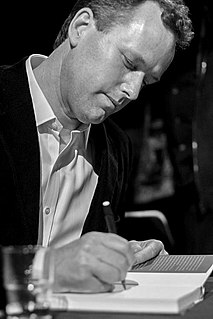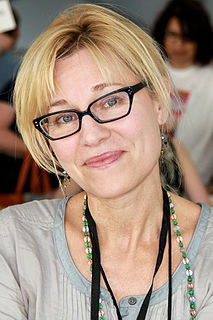A Quote by Andre Dubus III
If you don't put 99 percent of yourself into the writing, there will be no publishing career. There's the writer and there's the author. The author - you don't ever think about the author. Just think about the writer. So my advice would be, find a way to not care - easier said than done.
Related Quotes
The author with the greatest influence on me is my friend Stephen Harrigan, who critiques everything I write before I even bother to show it to my agent or editor. He's a truly great writer - author of Gates of the Alamo and other books you might know of, and his instincts about what's working in a story, and what's not, are just about perfect. My books would be very different without his influence.
I know publishing now more as an author than with occasional peaks inside those elite offices than as an industry insider. It was difficult publishing a novel the first time around, while working behind the scenes, knowing all that has to happen to make a book a success and to still make the leap as an author.
The best piece of advice I ever received about being a writer came from my brother Lee. I was just starting out and he told me that if I wanted to have a long career, I had to be versatile, that I shouldn't just think of myself in one way, because there would come a time when maybe that one thing wasn't working out for me - and I'd still want to earn a living as a writer.
I only know what it's like to be an author with social media. I can't compare. I do think we lose the mystery of the author. Today, I get tons of e-mails and Facebook messages from readers, and my goal with Twitter and Facebook is, if someone reaches out to me, I'm going to respond to them. I don't want to be an elitist author who is untouchable. I'm just a regular person, too. I will always respond to everybody.
Fairfield Porter who has been my model for art writing all along, said that if the most interesting thing about a work of art is its content, it's probably a failure. I think it's true that if you find yourself thinking about the meaning in an author's message, it's probably not very interesting as art. Obviously, this is a tough concept, because if you withdraw intention.






































